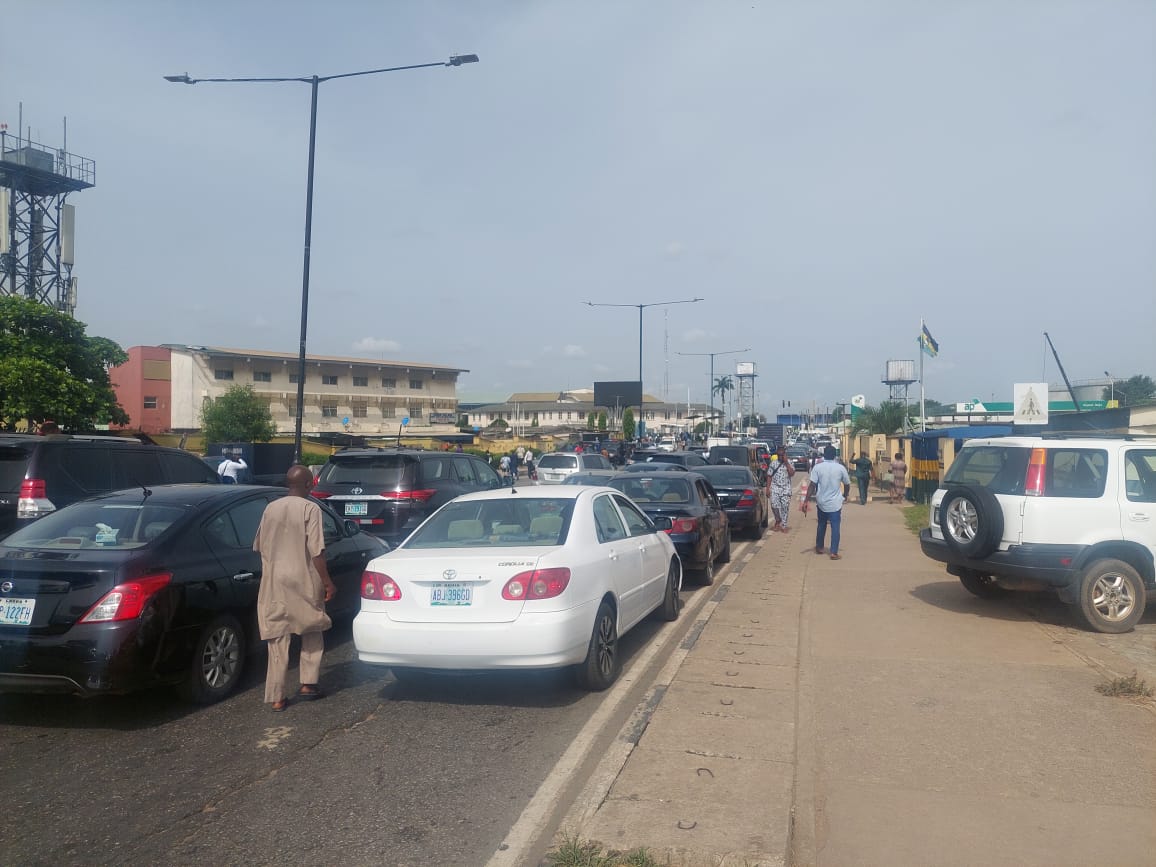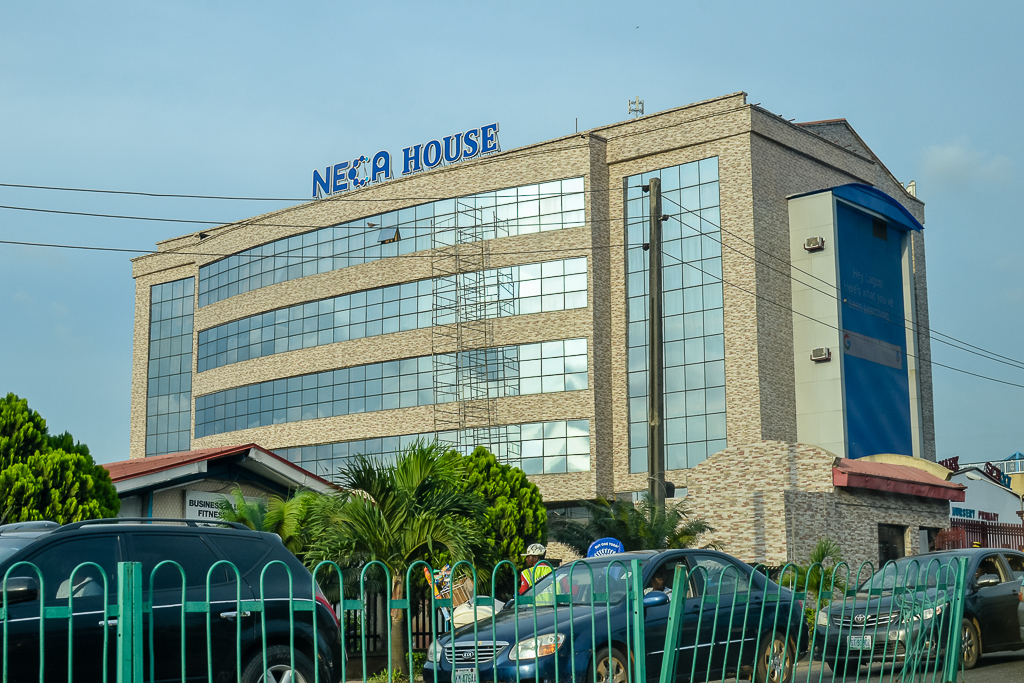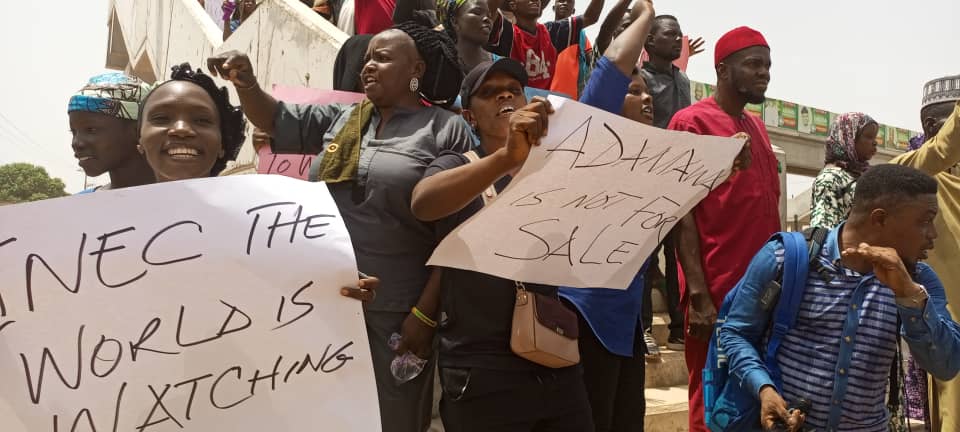For years, Nigeria has grappled with brain drain in the healthcare sector. With highly skilled health workers constantly leaving the country in search of better opportunities abroad, the doctor-patient ratio in health facilities continues to decline, consequently overwhelming available personnel.
Unsurprisingly, in February 2023, the World Health Organisation (WHO) said Nigeria is among 55 countries struggling with a shortage of health workers.
Exacerbated by the brain drain, the country now has a universal health coverage (UHC) service index below 55 and a health workforce density below the global median of 49 medical doctors, and nursing and midwifery personnel per 10,000 people.
The professionals are driven out of the country as a result of unsatisfactory working conditions, low pay, high level of economic inequity and escalating security challenges. More often than not, they are drawn by the incentives available in developed countries such as better remuneration packages, working conditions, and improved quality of life.
Advertisement
According to the online register of the General Medical Council of the United Kingdom (UK), the number of Nigerian doctors practising in the UK jumped from 7,167 in 2019 to 10,675 in 2022.
The anti-Brain Drain Bill
In response to the brain drain problem in the health sector, Ganiyu Johnson, an All Progressives Congress (APC) lawmaker from Lagos, sponsored a bill seeking to amend the Medical and Dental Practitioners Act 2004.
The amendment seeks to mandate Nigerian-trained medical and dental practitioners to practice for a minimum of five years in the country before being granted a full licence.
Advertisement
Although it was opposed by some lawmakers like Uzoma Nkem-Abonta (PDP-Abia) and Mark Gbillah, a lawmaker from Benue, the bill passed the second reading in the house of representatives on Thursday.
Leading the debate during plenary, Johnson said the bill aims to “make quality health services available to Nigerians”.nJohnson said it was only fair for medical doctors who enjoy taxpayer subsidies on their training to give back to society.
He said by working for a minimum number of years before leaving Nigeria to practice abroad, the country would have benefited from their skills. The proposed legislation has already drawn widespread criticism from stakeholders who accused the lawmakers of attempting to enslave doctors.
Subsidies For Medical Training
The sponsor of the bill put forward the subsidies for the training of health workers as a basis for saying they should mandatorily work in Nigeria for five years.
Advertisement
But how high is this subsidy?
While many Nigerians may consider the cost of studying medicine in Nigeria as expensive, it is relatively affordable when compared with other countries.
Based on feedback obtained from students in different government-owned tertiary institutions in Nigeria, the cost of studying medicine in Nigeria falls between N30,000 to N120,000 per session.
In developed countries like the United States and the United Kingdom, students can pay as high as $100,000 per year in tuition fees alone with many resorting to student loans.
Advertisement
Uche Ojinmah, Nigerian Medical Association (NMA) national president, says the subsidy argument does not hold water since the fees of every student who passes through a government-owned university are subsidised.
“If they want to say everybody that passes through Nigerian institutions must not leave Nigeria for five years, it is okay because it is now a law that is not segregational. But to target just Nigerian doctors, it cannot stand the test of time,” he said.
Advertisement
‘The Bill Is Not The Solution’
Stakeholders have said that the anti-brain drain bill may not address the root causes of the medical talent exodus.
They maintain that unless challenges such as poor working conditions, lack of medical equipment and facilities, and insecurity are adequately addressed, no change will be achieved.
Advertisement
Innocent Orji, president of the Nigerian Association of Resident Doctors (NARD), told TheCable that the association has on different occasions proffered solutions to the federal government but to no avail.
“At least the legislators have agreed with us that there is a problem but the solution he is proffering will complicate the matter. He is proposing a law that will contradict the constitutional right to freedom of movement. The lawmaker is proposing that one should not be certified as a doctor even when they have satisfied the requirement and merited it,” he said.
Advertisement
“What he’s proposing is to treat the symptom and not the disease. People are moving because of poor remuneration, terrible infrastructure, and insecurity. The salary we’re using now was brought in 2009 and inflation has since skyrocketed. While we are patriotic Nigerians, we have to cater for our families.
“The government needs to think outside the box, not everything has to be solved using force. For instance, if you give doctors a house loan in the form of a mortgage that needs to be paid over a number of years, the person will not leave the country because they’ll have to finish paying that.”
Holding the same view, Uche Ojinmah, NMA national president, said the bill would likely produce an opposite effect of what is expected.
He added that all the national assembly has done is press the panic button of Nigerian doctors.
“Before you know it, those planning to leave in one year or two will leave immediately because some of them will be scared,” he said.
“The solution is not the bill but to find out what is causing the brain drain and take care of it. You say they are going to look for greener pastures, make their pastures green in Nigeria. It is simple.”
‘Human Rights Violation’
Another concern that has been repeatedly raised by affected parties is constitutionality and human rights violation.
The Nigerian Medical Students Association (NiMSA) and NARD president had argued that the bill is a breach of the fundamental human rights of doctors as enshrined in the 1999 constitution.
“It is unpatriotic, ill-timed and a breach of the fundamental human right of doctors as enshrined in the 1999 constitution of Nigeria as amended,” NiMSA said.
Section 41 of the Nigerian constitution states “that every citizen of Nigeria is entitled to move freely throughout Nigeria and to reside in any part thereof, and no citizen of Nigeria shall be expelled from Nigeria or refused entry thereby or exit therefrom except in the following circumstances:
- imposing restrictions on the residence or movement of any person who has committed or is reasonably suspected to have committed a criminal offence to prevent him from leaving Nigeria;
- be tried outside Nigeria for any criminal offence; or
(ii) undergo imprisonment outside Nigeria in the execution of the sentence of a court of law in respect of a criminal offence of which he has been found guilty”.
But when the issue was raised at the plenary session, Femi Gbajabiamila, speaker of the house, said fundamental human right is not absolute and that freedom can be restricted in some situations.
“Let me clear the issue of fundamental human rights that have been raised. If you go to section 45 of the constitution, it allows you to deviate from your fundamental human right under certain conditions,” the speaker said.
Section 45 states that: “An act of the National Assembly shall not be invalidated by reason only that it provides for the taking, during periods of emergency, of measures that derogate from the provisions of section 33 or 35 of this Constitution; but no such measures shall be taken in pursuance of any such act during any period of emergency save to the extent that those measures are reasonably justiable for the purpose of dealing with the situation that exists during that period of emergency.”
With the matter still playing out in the national assembly, it remains to be seen how it will pan out.
Add a comment






